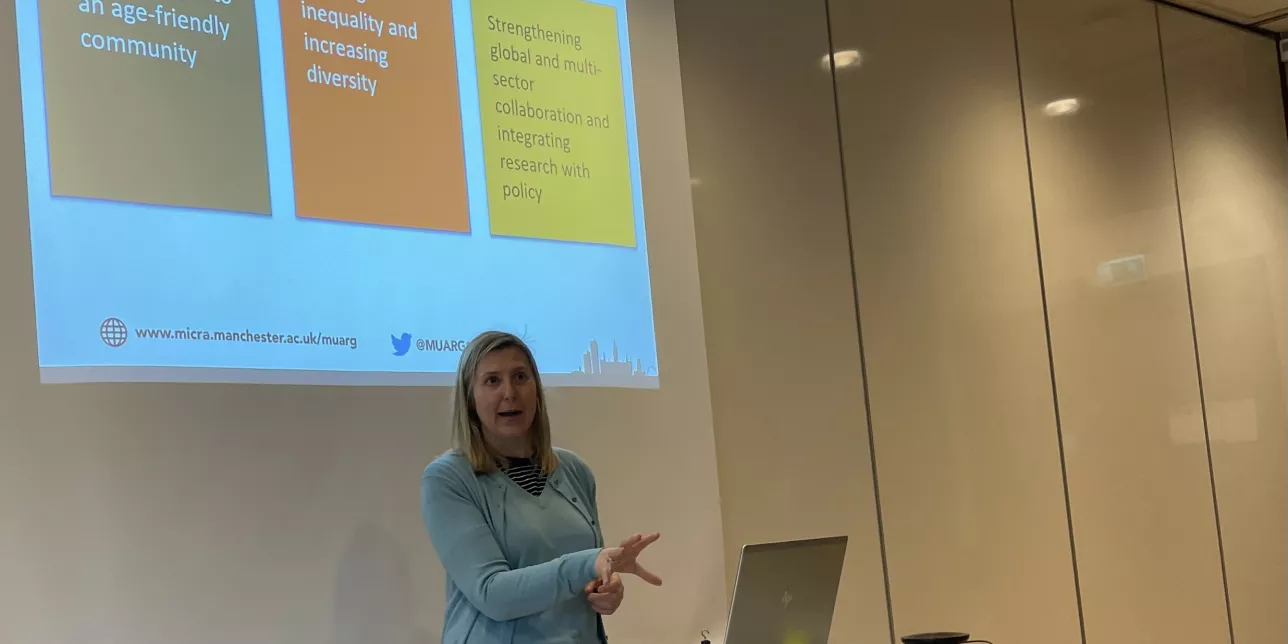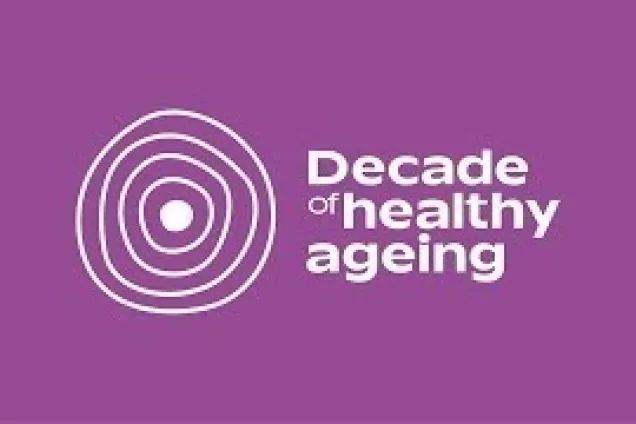Her presentation in the CASE Scientific Session had a focus on social and economic inequalities, and their consequences, both for research and urban ageing. The implications of such inequalities for age-friendly policy and practice were discussed, arguing that unless they pay attention to questions of inequality and social justice, such programmes run the very real risk of amplifying inequalities.
Challenges and opportunities
Tine Buffel gave an overview of the main challenges and opportunities for the future of the age-friendly movement, together with a manifesto (seen in the background of the picture) to inspire progress for the movement, one which builds on ideas around spatial justice and the right to an age-friendly community.

